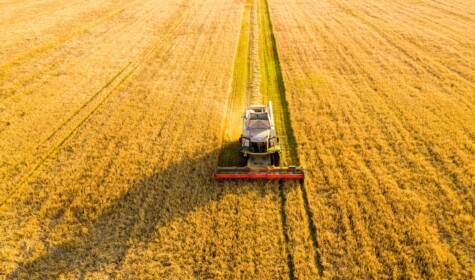Could Europe become more self-sufficient in food if it moved to growing alternative proteins – the ingredients used to make many processed plant-based products? Researchers from the Green Alliance, sponsored by the Good Food Institute (GFI), think so. Modelling in their report, ‘A New Land Dividend’, suggests that this could also support more land for nature.
On the surface, there is much in this report to support – the focus on agroecology (farming with nature), the need to balance food production and nature restoration, and the need to support dietary shifts for the health of both people and planet.
Indeed, our own modelling at the Sustainable Food Trust shows that we will need to transform what we consume and produce to ensure resilient food production now and for the future. But, as farming experts, we come to a very different conclusion to those reached in this report.
Commenting on Green Alliance’s findings, SFT Policy Director, Lesley Mitchell, says, “We need to ensure we don’t come to perverse and overly simplistic conclusions from this research, such as getting rid of all animal farming or targeting all beef and dairy – indeed, grazing animals such as cattle and sheep are an essential part of the shift to farming with nature (agroecology) and reducing our dependence on fertilisers and pesticides.
“Let’s not confuse environmentally friendly grass-based farming with industrial intensive animal production. If we want to farm and eat sustainably, we need to dump these intensive industrial animal production systems and focus on rearing animals as part of regenerative farming. A widespread shift to agroecological food production will be essential if we are to restore our heavily degraded soils, biodiversity and ensure carbon drawdown.”
The SFT’s own report, ‘Feeding Britain from the Ground Up’, found that to be sustainable, meat consumption – in the form of chicken and pork – needs to reduce. We need to move away from the industrial systems, such as intensive chicken production, that are hungry for inputs, not least huge amounts of soy and cereals grown on land that could otherwise be used for food for human consumption. These inputs are typically reliant on artificial pesticides and fertilisers that can cause profound environmental harm, particularly in regions of globally sensitive habitats where the feeds for intensively farmed animals are often grown.
Conversely, grazing animals such as cattle and sheep provide high-quality nutrition and are key to managing and restoring land and nature.
We support Green Alliance’s call to increase agroecology and plant protein production. However, it is essential to distinguish what meat, from which production systems, needs to be replaced, along with which types of livestock are part of the problem and which are part of the solution.
Press contact
For more information contact
Victoria Halliday, Communications Manager
Email: Victoria.halliday@sustainablefoodtrust.org
Tel: (0)117 987 1467
Notes:
[1] The GFI report, ‘A New Land Dividend’ was released on 9 May 2024 and is available to read here.
[2] The SFT report, ‘Feeding Britain from the Ground Up’ was released in June 2022 and is available to read here.


